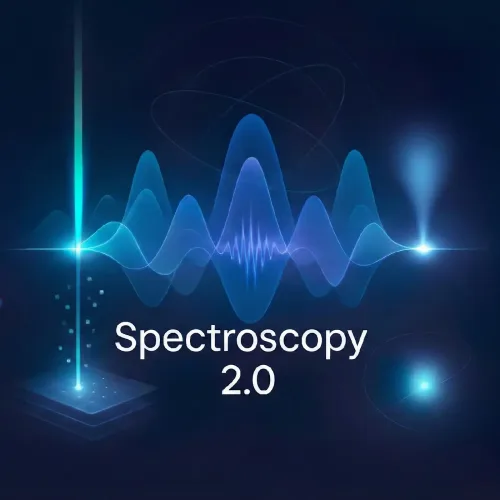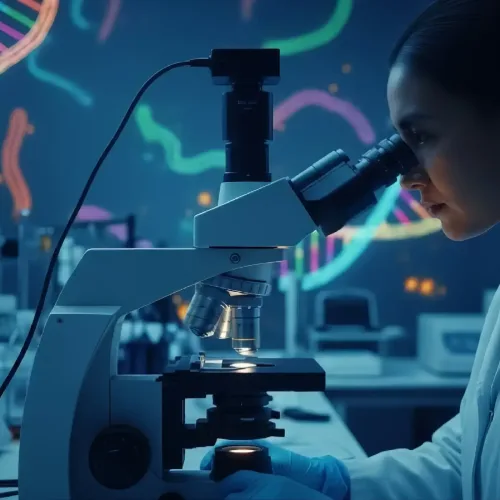When my aunt was diagnosed with breast cancer a few years ago, it shocked our family into action. We all started asking, “Can we even be at risk?” As we discovered BRCA gene testing, we realized it could provide important insights into our cancer risk. If you are questioning whether to consider a BRCA gene testing, you are not alone. This genetic test is becoming more common, yet confusion persists as to who needs it and why. Let’s clarify the facts and understand the importance of this test.
What Is the BRCA Gene?
BRCA gene testing examines specific mutations in the BRCA1 and BRCA2 genes. These genes, when working correctly, help to repair DNA damage and prevent tumor growth. However, mutations can increase the risk of developing breast, ovarian and other types of cancer.
BRCA mutations are hereditary, that means they can be passed on through families. If you have a close blood relative (parent, sibling, child) with the BRCA mutation, you have a 50% chance of carrying that mutation as well. The decision to undergo BRCA gene testing should not be taken lightly, but it can be a vital step in managing your health.
Who Should Get BRCA Gene Testing?
BRCA gene testing is recommended for anyone who has a personal or family history of certain cancers.
1. Family History of Breast or Ovarian Cancer
One of the strongest indicators for BRCA gene testing is a family history of breast or ovarian cancer, especially when diagnosed at an early age. If a close relative, such as a mother, sister or grandmother, had breast or ovarian cancer, your risk may be significantly higher. As a result, the test helps you determine if you have inherited the BRCA gene mutation.
2. Multiple Cases of Cancer in the Family
When multiple generations of a family have been diagnosed with breast or ovarian cancer, BRCA gene testing acquires even greater importance. The risk is not limited to one or two cases. Rather, it sheds light on possible hereditary cancer patterns.
3. Ashkenazi Jewish Ancestry

BRCA mutations are more common in individuals of Ashkenazi Jewish ancestry. If you belong to this group and have a family history of breast or ovarian cancer, your chances of getting a BRCA gene mutation increase significantly. In this scenario, testing becomes crucial, making it an essential step for proactive health management.
4. Personal History of Breast Cancer
When doctors diagnose you with cancer at a young age, BRCA gene testing reveals whether a genetic mutation caused your cancer. Knowing this helps you assess your risk for another cancer and directly impacts your treatment choices.
What Does BRCA Gene Testing Involve?
Getting tested for BRCA mutations is a straightforward process. It begins with a simple blood or saliva sample, which you send to a laboratory for genetic analysis. The lab then examines the sample for specific mutations in the BRCA1 and BRCA2 genes. Typically, you receive the results within 2–3 weeks. If the test detects a harmful BRCA mutation, you will then meet with genetic counselors. They will discuss your results and evaluate your cancer risk. Moreover, they will help you decide on the best steps for screening, prevention, and treatment.
How BRCA Gene Testing Can Change Lives

Knowing your BRCA status is crucial because it helps you take proactive steps to manage your cancer risk. If you test positive for the BRCA mutation, you can undergo more frequent screenings, use preventive medication, or even consider risk reducing surgery. For instance, women with the BRCA mutation, face an 80% lifetime risk of developing breast cancer. With this knowledge, they can start getting breast MRI scans at age 25-30, alongside regular mammograms. By detecting cancer early or taking preventive measures, you significantly lower your risk.
Taking Charge of Your Health
The BRCA gene test is a powerful tool for people with a family history of breast or ovarian cancer. This provides clarity, allowing individuals to understand their risk and take proactive steps to protect their health. If you fit into any of the categories mentioned, consider discussing BRCA gene testing with your healthcare provider. This test is more than just a genetic screening, it is a path to informed decision-making and a potential lifesaving opportunity.




